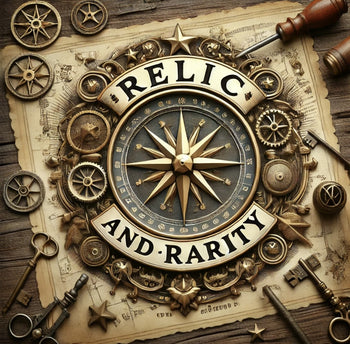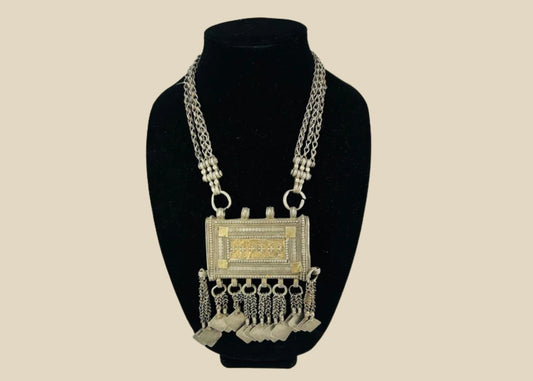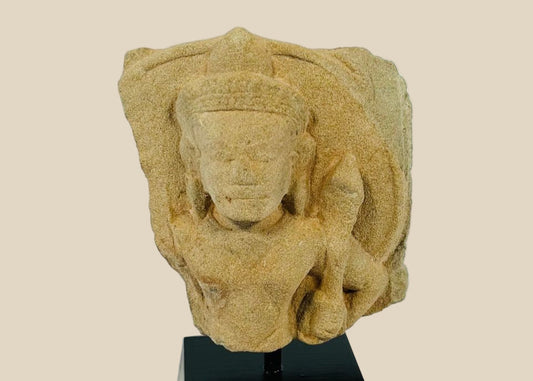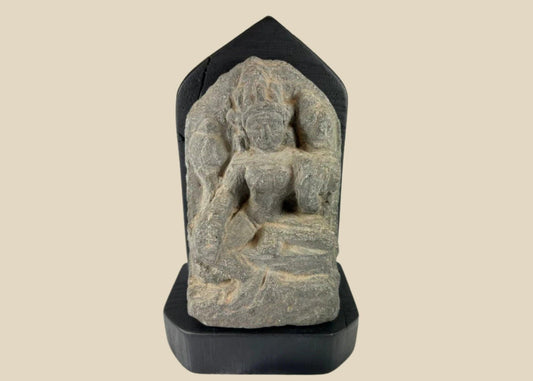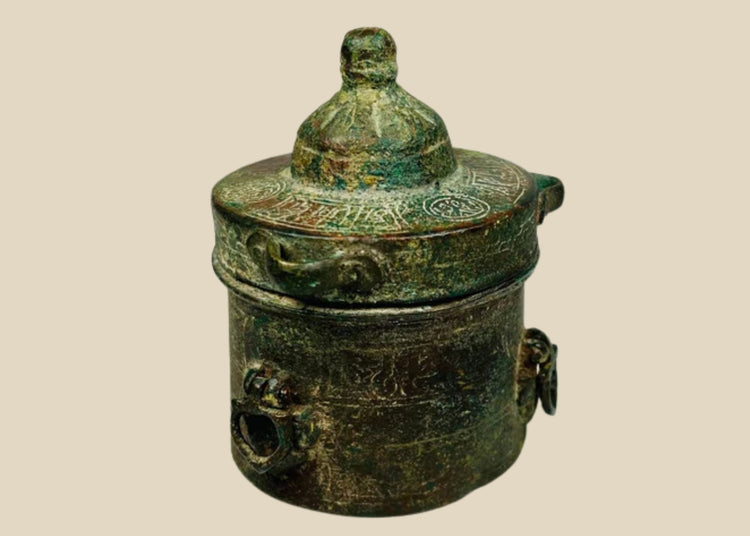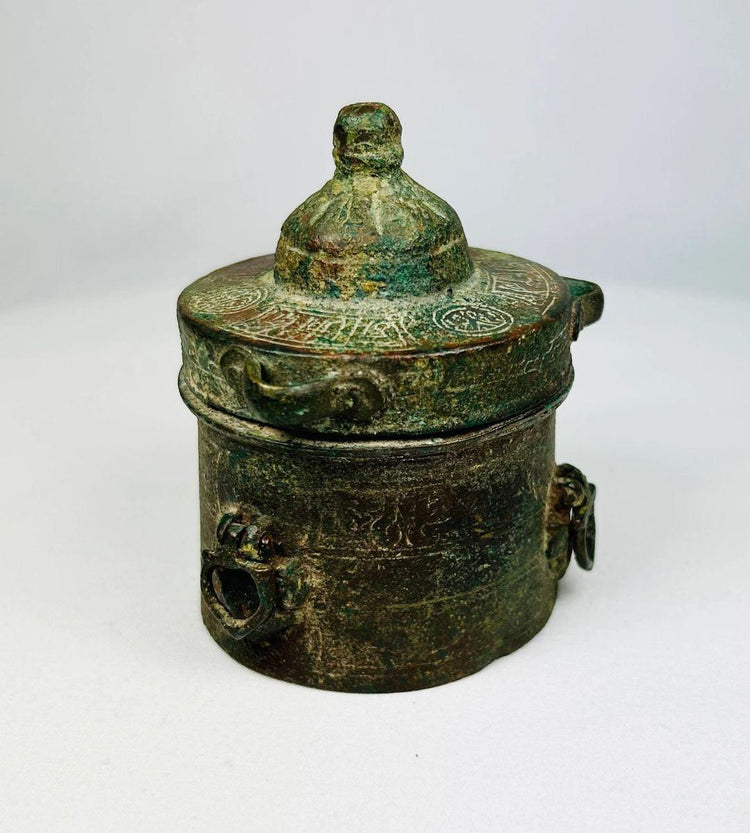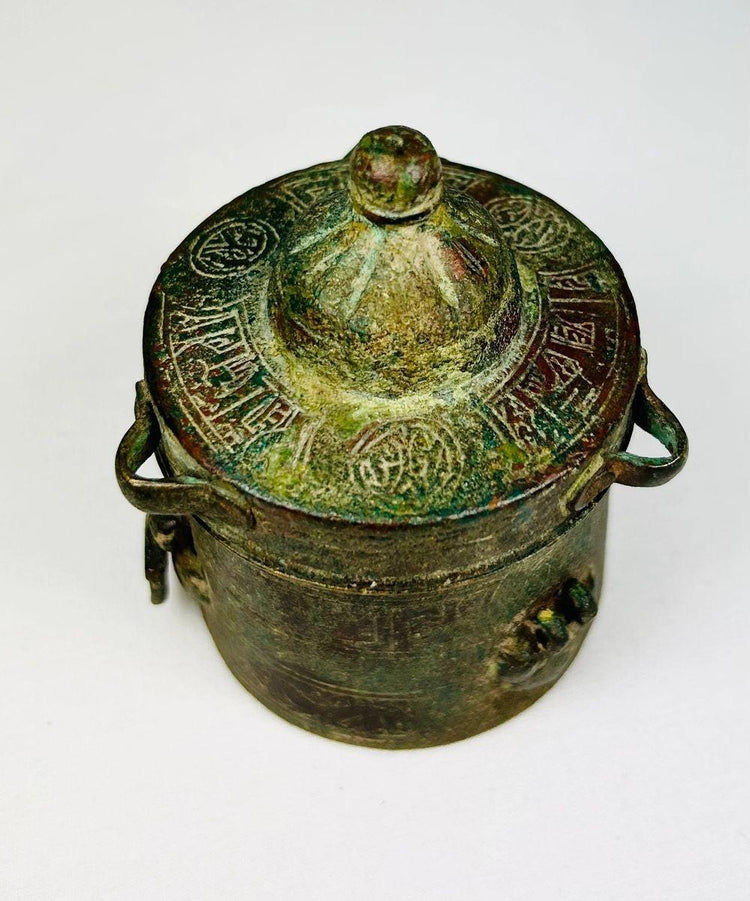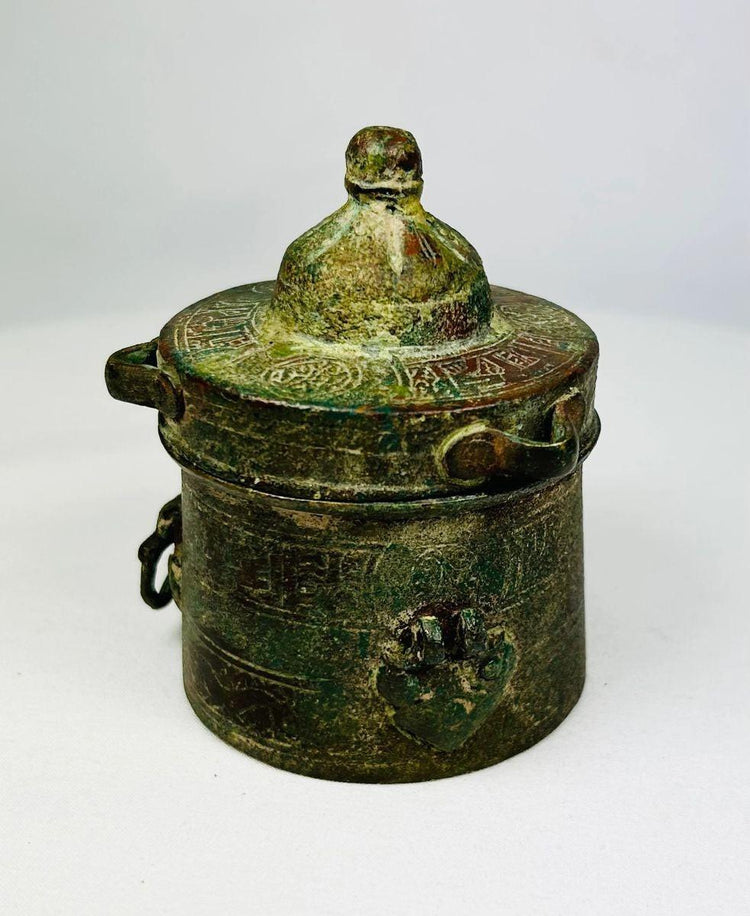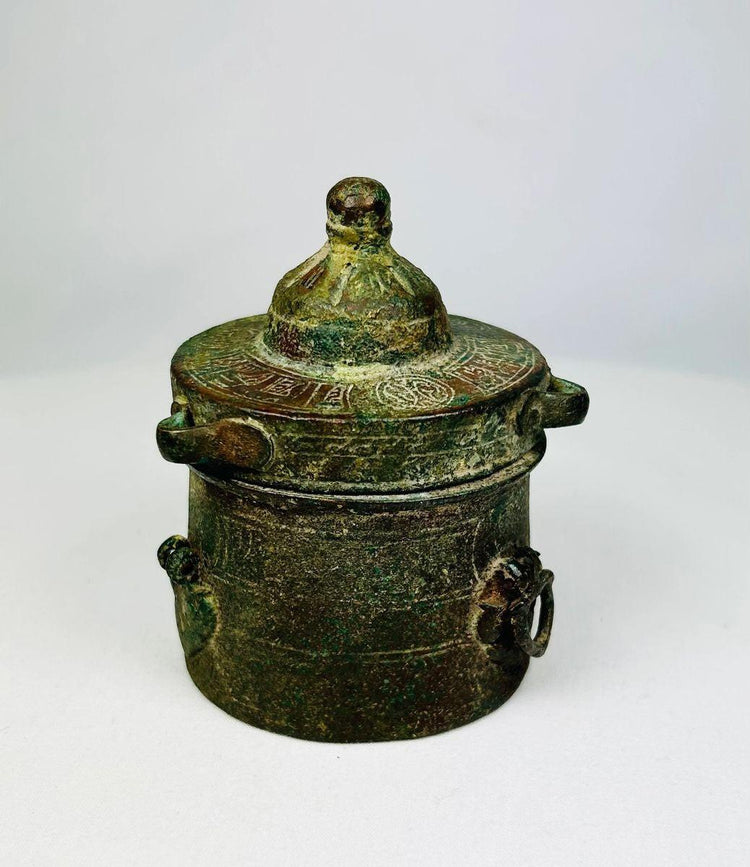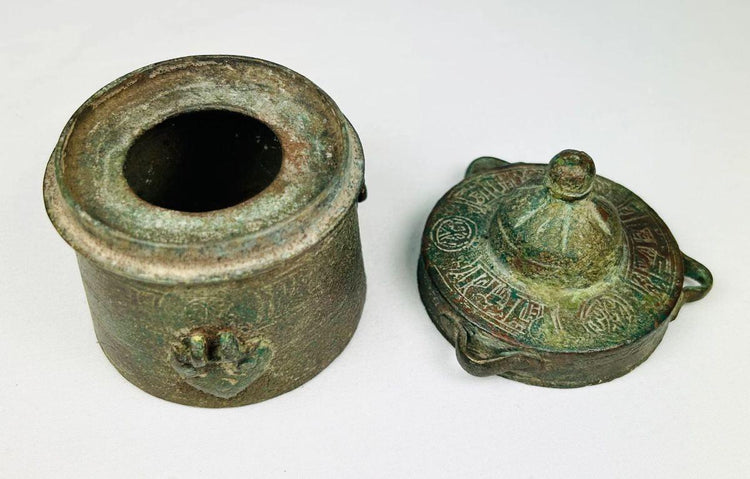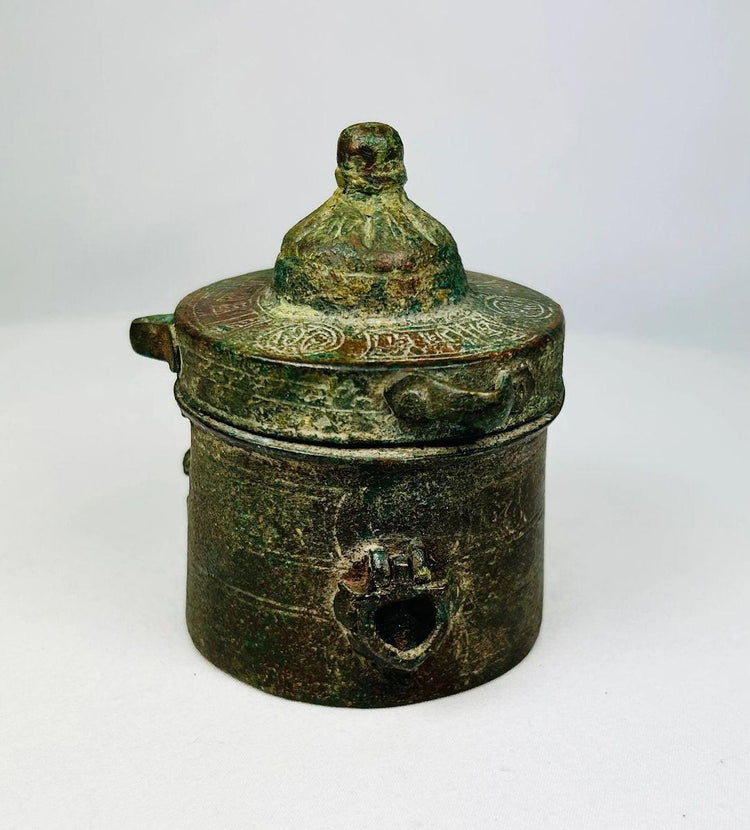Islamic Khorassan Bronze Inkwell with Intricate Engravings Circa 10-12th Century
Description
More
Less
Historical Context & Origin
Region: Khorassan (northeastern Iran, Afghanistan, and Central Asia)
Material: Cast and engraved bronze
Period: 10th–12th Century
Description
This finely crafted Islamic Khorassan bronze inkwell is a rare survival from the 10th–12th century, a time when the Islamic Golden Age fostered extraordinary advances in art, science, and scholarship. The inkwell is cylindrical in form with a domed lid, surmounted by a central handle for easy use. Its surface is richly decorated with intricate floral and geometric engravings, hallmarks of Khorassan bronze work. The flowing motifs exemplify both the aesthetic refinement and technical mastery of Islamic artisans during this flourishing period.
Features
- Cylindrical body with continuous engraved decoration
- Domed lid with central handle for functional use
- Floral and geometric motifs characteristic of Khorassan artistry
- Rich patina of green and brown, accentuating its age and authenticity
Cultural Significance
Inkwells such as this played an essential role in the intellectual life of the Islamic Golden Age, when the written word was revered as a means of preserving religious texts, philosophical works, and scientific knowledge. They were prized possessions of scholars, scribes, and educated elites, often accompanying the production of illuminated manuscripts and calligraphic works. This example not only reflects the artistry of Khorassan craftsmen but also stands as a tangible symbol of the value placed on learning, literacy, and cultural achievement in the medieval Islamic world.
Condition
The inkwell survives in very good condition for its age. The surface bears a natural patina of green and brown, with expected wear from centuries of use. Minor abrasions and age-related irregularities are present but stable, underscoring its authenticity and historical use. No modern restorations have been applied.
Dimensions (approximate)
Height: 3 in
Width: 2.5 in
Age
Approximately 900–1,100 years old
Description
Historical Context & Origin
Region: Khorassan (northeastern Iran, Afghanistan, and Central Asia)
Material: Cast and engraved bronze
Period: 10th–12th Century
Description
This finely crafted Islamic Khorassan bronze inkwell is a rare survival from the 10th–12th century, a time when the Islamic Golden Age fostered extraordinary advances in art, science, and scholarship. The inkwell is cylindrical in form with a domed lid, surmounted by a central handle for easy use. Its surface is richly decorated with intricate floral and geometric engravings, hallmarks of Khorassan bronze work. The flowing motifs exemplify both the aesthetic refinement and technical mastery of Islamic artisans during this flourishing period.
Features
- Cylindrical body with continuous engraved decoration
- Domed lid with central handle for functional use
- Floral and geometric motifs characteristic of Khorassan artistry
- Rich patina of green and brown, accentuating its age and authenticity
Cultural Significance
Inkwells such as this played an essential role in the intellectual life of the Islamic Golden Age, when the written word was revered as a means of preserving religious texts, philosophical works, and scientific knowledge. They were prized possessions of scholars, scribes, and educated elites, often accompanying the production of illuminated manuscripts and calligraphic works. This example not only reflects the artistry of Khorassan craftsmen but also stands as a tangible symbol of the value placed on learning, literacy, and cultural achievement in the medieval Islamic world.
Condition
The inkwell survives in very good condition for its age. The surface bears a natural patina of green and brown, with expected wear from centuries of use. Minor abrasions and age-related irregularities are present but stable, underscoring its authenticity and historical use. No modern restorations have been applied.
Dimensions (approximate)
Height: 3 in
Width: 2.5 in
Age
Approximately 900–1,100 years old
You May Also Like
